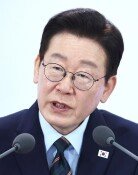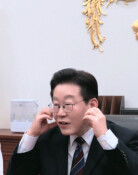Cooperation for semiconductors among US, Japan, and Taiwan accelerates
Cooperation for semiconductors among US, Japan, and Taiwan accelerates
Posted November. 10, 2021 07:27,
Updated November. 10, 2021 07:27
Japan has passed a bill to provide subsidies for the construction of semiconductor plants with an aim to position itself as a semiconductor hub by hosting global companies.
Previously, Taiwan’s TSMC, the world’s No.1 foundry, and the U.S.’s Micron Technology decided to newly build plants and research facilities in Japan. It seems that the Japanese government has discussed this with the two companies under the table. While the U.S., Japan, and Taiwan strengthen cooperation, South Korea is turning down the industry’s request for support, delaying the plant construction of a domestic company.
The restructuring of the semiconductor supply chain is focused on locations, rather than the bases of companies. U.S. President Joe Biden is offering subsidies while putting pressure to attract more local investment. Japan will reportedly pass a bill this month to provide about five trillion won in subsidies for the construction of TSMC’s plant in Kumamoto. The country is also likely to provide subsidies for Micron Technology’s plant in Japan. Japan is domestically building a global production system and expanding technology cooperation.
In addition, Micron Technology is planning to build a D-RAM factory in Taiwan. Western Digital based in the U.S. is working to acquire Kioxia, a Japanese NAND Flash manufacturer. The three countries are investing in each other with triangular cooperation and building a new network of cooperation for the semiconductor. This raises concerns that South Korean companies will be excluded and competed against.
In the process of legislating a special semiconductor law, the ruling Democratic Party of Korea turned down the industry’s request to increase the number of students accepted by semiconductor departments in universities in Seoul and nearby regions while adding a series of conditions to support, including tax exemption. An exception to the 52-hour work week rule for research and development, which requires intensive work in a short period of time, was also dismissed. It is uncertain when the bill will be finally passed. All of these will make the survival of South Korean semiconductor companies difficult.
Japan has world-leading competitiveness in materials and equipment. Once global companies join the country, the South Korean semiconductor industry will be threatened. The Organization for Economic Cooperation and Development (OECD) forecasted that South Korea’s potential growth would be the lowest among its member countries while the International Monetary Fund worries about the country’s national debt. It is not the time to leave the semiconductor industry, which is one of the important pillars supporting the South Korean economy, only in the hands of businesses. The government should work with them to strengthen global cooperation and complement the special law to have a practical impact.



![[단독]폴란드, 韓 해군 최초 잠수함 ‘장보고함’ 무상 양도 안받기로](https://dimg.donga.com/c/138/175/90/1/wps/NEWS/IMAGE/2026/02/27/133437397.1.jpg)
![‘노인 냄새’ 씻으면 없어질까?…“목욕보다 식단이 더 중요”[노화설계]](https://dimg.donga.com/c/138/175/90/1/wps/NEWS/IMAGE/2026/02/27/133434557.3.jpg)


